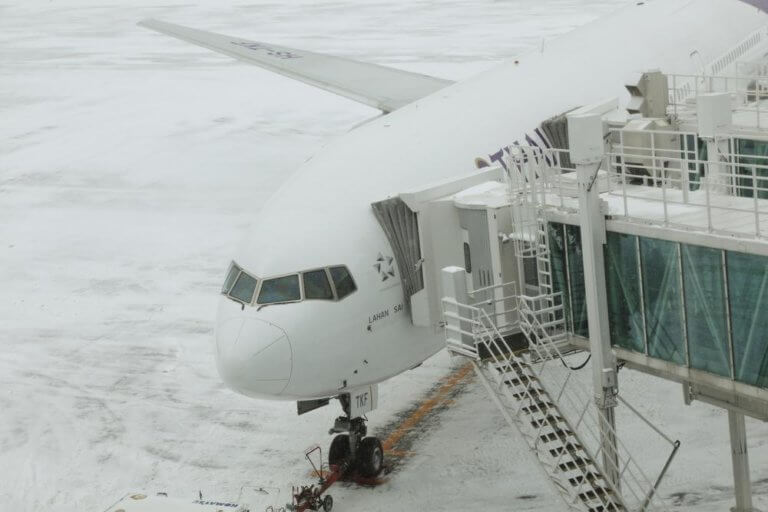The hundreds of different nations across the globe – all with different laws and different tax rules – offer businesses an exciting platform to expand their trade. Financial advisers can look how to best advise their business clients on how to minimise their tax bill, using their knowledge and expertise to identify the best opportunities across the world. Expanding abroad is very expensive as it is but you can save money through an understanding of the tax system.
Challenging economic times mean that companies are looking to save money where they can and reduce their tax payments to stay competitive – especially if they feel that they are paying more tax than is fair.
Tax jurisdictions deliberately attract business by cutting their tax rates
Tax jurisdictions which are struggling economically deliberately cut their corporate tax rate with the pressure to compete and attract more business. Britain is known to be exceptionally ‘high tax’, so it makes financial sense for businesses to look for alternatives-even if they do sometimes go too far!
While companies may look to pay less VAT, they contribute vast amounts to the UK economy in other ways – but they need to stay competitive in order to do so. A huge amount of tax comes from UK businesses, but only a small amount of that is corporation tax. Therefore in its current form, corporate tax is perishing, because a product is no longer made in just one country.
Location, location, location
It is universally acknowledged that companies can minimise their tax bills by setting up branches abroad. For example, Google UK operates in Ireland and Bermuda, taking advantage of the low tax rates and state that they have a responsibility to their shareholders to minimise costs. Google deliberately chose Ireland as its nucleus to coordinate marketing and sales across Europe.
When a business chooses where to locate its distribution and service hubs, headquarters and factories, it makes financial sense to choose a low-tax jurisdiction. Obviously tax is just one of the criteria when a business is looking to set up a branch abroad – they also have to locate near local suppliers and an expert workforce.
It is extremely doubtful that a universal corporate tax law will be implemented across Europe in response to this movement, as this would mean that countries such as Ireland would lose out, no longer able to offer a cheap rate to cut the amount companies must pay on profit thereby no longer attracting business when they desperately need to.
Transfer pricing
Cash-needy governments are looking to crack down on businesses saving tax abroad, but even if a company can’t set up a branch abroad it can still move its taxable profits overseas. For example, the UK part of the business lending money to other branches abroad – this is known as ‘transfer pricing’. Intercompany transactions are of course perfectly legal.
Setting up a branch abroad for the first time
With the knowledge that taxes vary from country to country, the first step is to maximise tax efficiency by finding out what tax you are required to pay in which country.
Planning your move is crucial – your financial advisor will need to look into whether you need to create a permanent establishment abroad and whether it will benefit your business better as a branch or a subsidiary.
Other factors to negotiate or consider include whether you should recruit staff locally, or bring UK staff (UK tax resident or overseas residency) and how that will impact tax you pay. You will need to register for local tax and take into account your foreign currency, banking obligations and repatriation of profits.
These are the main tax concerns which can have significant consequence for your business:
• Payroll tax obligations
Payroll Tax is worked out by your wage total that you pay out per month and is collected in each branch of the business
• The impact of the OECD BEPS programme
The Organisation of Economic Cooperation and Development (OECD) designed a plan known as the BEPS programme, to try to reform the international tax system
• Controlled Foreign Companies legislation
The legislation is designed to prevent low tax jurisdictions benefiting from UK profits
• Withholding taxes
This is a tax deduction in wages, paid directly to the government
• Transfer of Assets Abroad
The Transfer of Assets Abroad (TOAA) prevents UK nationals using foreign transfers to save on tax
• Thin capitalisation
Thin capitalisation is where a business is financially boosted via a high level of debt compared to equity
• Structuring of operations including the foreign branch exemption
UK businesses can apply for profits of their branches abroad to be exempt from UK taxation
• Double tax treaty issues
Bilateral tax treaties alleviate double taxation when it happens – most EU countries have this in place
• Corporate tax residency
HMRC are seeking to maximise tax during this currently unstable economic time
• Operation of the UK R&D and Patent Box tax regimes
Businesses can apply for a lower corporation tax rate for profits made by patented inventions.
There are many key benefits for a business in setting up a branch abroad, including tax savings that can be found in the government incentives of the country you choose to move to.
Differing countries are sure to want to attract your business and a branch abroad offers access to a potentially untapped market, an increase in global brand identity and better business recognition and support in a more encouraging environment.
Seeking expert tax advice will allow you to watch out for the pitfalls and take advantage of the opportunity to expand and grow your business.
























